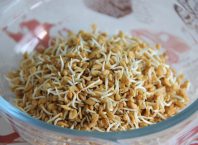Table of Contents
Supplementing your diet can be one of the most efficient ways for you to improve your health. With the right supplements, you can help many aspects of your health, whether you are interested in weight loss, improving your immune system, or covering a vitamin deficiency. Consider some of the following tips when you supplement your diet.

Pay Attention to the Dosage
Though supplements can be an excellent addition to your daily meals, it is vital for you to plan for your dosage and needs. It can be easy to assume that any multivitamin will fit into your exact diet, but unless you speak with a doctor, there is no way to tell if it will help or hurt in the long-term. A vitamin’s RDA (recommend dietary allowance) is a good place to start. However, your own RDA can vary depending on factors such as your age, gender, weight, etc. As you talk with your doctor or look over supplements, take your diet and lifestyle into consideration.
Never Substitute Them for Food
Some people may think that having vitamins means that it is okay to ignore other dietary needs. This is extremely dangerous and could lead to a number of problems in the future. All vitamins are meant to be taken as supplementary dietary aids, not as a way to replace any other food that you regularly need to have. Be sure to eat healthy, holistic meals, even as you take supplements.
Get Skin Vitamin Capsules
Some vitamin capsules, however, are always good to have. Vegan healthy skin vitamins can be just what you need to improve the appearance of your skin. They can not only lend a more youthful appearance to your skin, they can also prevent future damage from leaving permanent marks on the surface.
Store the Capsules Appropriately
The way you store the supplements can make a huge difference in how they work. You want to make sure that they are kept in a cool, dark place to avoid damaging their chemical makeup. Pay attention to how old they are as well. If your capsules start to show signs of obvious age and wear, they will not work as well. Set an alarm on your phone or make a mark in your planner to make sure you remember to take them.
Avoid Certain Supplements
There are some supplements that can actually be dangerous to your health if you take more than you need. Though paying attention to the dosage is vital, avoid taking Vitamin A, D, and E supplements unless you know that you have a medical condition that requires you to have these in your diet. It is important that you don’t solely rely on your supplements to provide for the vitamins you need. Spending some time in the sun, eating carrots and fruits that are high in antioxidants, and drinking milk can be great ways to get the aforementioned vitamins without the need for supplements.
If you are not sure about which supplements you should be introducing into your diet, it is a good idea for you to consult with a medical professional at your earliest convenience. A visit to the doctor can help you keep a holistic view of your health. They can help you plan for your supplements by assessing your health and seeing where you might need a little boost.
When you properly consult your doctor, take them consistently, and plan your dosage correctly, supplements can provide a tangible benefit to your health. Furthermore, as long as you continue to have a healthy diet, store capsules in cool dark places, and avoid supplements you don’t need, you can prevent supplements from having a negative effect on your health.















